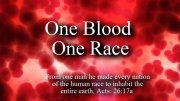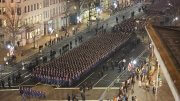In my seminary course on sermon preparation the author of the book made an interesting statement in his introduction. He said, “Words do not have a meaning – they have a usage.”
Of course they have a meaning and a definition, but he was pointing out a valuable lesson to would-be Bible teachers and preachers. You need not only know the definition of the words you use, but you must know the full range of their usage.
Although my grammar is not always A+, I work overtime to extract the full meaning/usage of key words in my statements – more especially in this lesson.
My closing statement last time was: “Maybe these words – image and glory – have a different connotation in Greek than they do in English.” I was trying to get out from under the full responsibility of being a male. I didn’t ask to be born a male, but having been selected by God to be one I had the responsibility to live as He intended all men to live.
I researched image and glory in my Greek dictionary upon arriving at home that night. Those combined definitions gave me no relief. In fact, they did the opposite. The Greek words not only duplicated the English, they enhanced them.
Learning this biblical truth brought greater emphasis on my failures as a husband and father – but they brought me to my knees and put me on the path of a needed change.
Greek: Image: ikone: a likeness i.e. (literally) statute, profile. English: icon: (Definition 2) an image of Christ, a saint, etc
Greek: Glory: doxa: glory (as very apparent) English: Glory: (Definition 1) very great praise, honor, or distinction bestowed by common consent, renown
With these definitions as a backdrop we will further explore the meaning of this passage.
Verse 11: “For a man indeed ought not to cover his head,…” Why?
In verse 4 we read: “Every man praying or prophesying, having his head covered, dishonoureth his head.” We learned in verse 3 his “head” is Christ.
Now, the head covering in that day was normally a turban. Turbans could be stylish if so desired, but many were primarily utilitarian. Most had veils, that, when drawn about the head, provided protection from the sun, wind and sand. In effect, a man wearing a fully drawn turban may not be recognizable even by his family and people who knew him.
If he were not recognizable would he be the “image and glory of God” to his family and those hearing him pray or prophesying? The obvious answer is, no.
Verse 7 concludes: “…but the woman is the glory of the man.” She is equal to the male, but she has a different roll in God’s line of authority.
By now you are probably asking, but how does this relate to dealing with unresolved anger and resentments. This foregoing explanation is the pathway unresolved anger and unresolved resentments travel. All of our resentments ultimately are transferred to God through our earthly image of Him.
Next time we will define resentments.
 Rev. Thomas (Tom) C. Lacy, Advisory Board Member of the Virginia Christian Alliance and Founder and Director, of New Hope Counseling Service.
Rev. Thomas (Tom) C. Lacy, Advisory Board Member of the Virginia Christian Alliance and Founder and Director, of New Hope Counseling Service.




